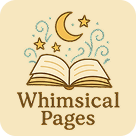For casual readers, a book’s worth is in the story itself. But for collectors, condition, rarity, and historical importance can make certain titles far more valuable than their cover price. Whether you’re browsing a used bookstore, shopping online, or exploring estate sales, knowing what makes a book valuable can help you identify hidden gems worth collecting.
Look for First Editions
First editions, especially first printings, are among the most sought-after books in the world of collecting. Classic works like F. Scott Fitzgerald’s The Great Gatsby or J.K. Rowling’s Harry Potter and the Philosopher’s Stone are worth thousands if they are true first editions in good condition. To confirm, check the copyright page for phrases like “First Edition” or a number line beginning with “1.”
Check the Condition
Condition dramatically impacts a book’s value. Collectors seek copies that are free from stains, torn pages, or writing in the margins. Dust jackets are equally important—sometimes the jacket alone can be worth more than the book itself if it’s original and well-preserved.
Search for Signed or Inscribed Copies
Autographs add significant value, especially if signed by the author during the book’s first release. A signed first edition of Ernest Hemingway’s works, for instance, is far more valuable than an unsigned copy. Inscribed notes that show a personal connection between author and recipient can make the book even more desirable.
Pay Attention to Binding and Print Runs
Special editions such as leather-bound, gilt-edged, or numbered copies are often more valuable. Books from small print runs also carry more worth because of their scarcity. Limited editions, like those produced by specialty publishers, often include certificates of authenticity.
Use Trusted Resources
When in doubt, turn to reliable sources. Marketplaces like AbeBooks, Biblio, and Bauman Rare Books are trusted platforms for identifying and purchasing rare or valuable titles. Tools like Rare Book Hub can help you research current market values.
Be Wary of Reprints
Many books are reprinted with similar-looking covers or anniversary editions. While these may look like first editions, they typically don’t hold the same value. Always confirm publication details before buying.
Final Thoughts
Spotting a valuable book requires a combination of knowledge, observation, and research. By focusing on editions, condition, signatures, and binding details, you can make smarter decisions when adding to your collection. Whether you’re buying from a trusted online seller or browsing a local shop, these strategies can help you find treasures worth holding onto for years.




